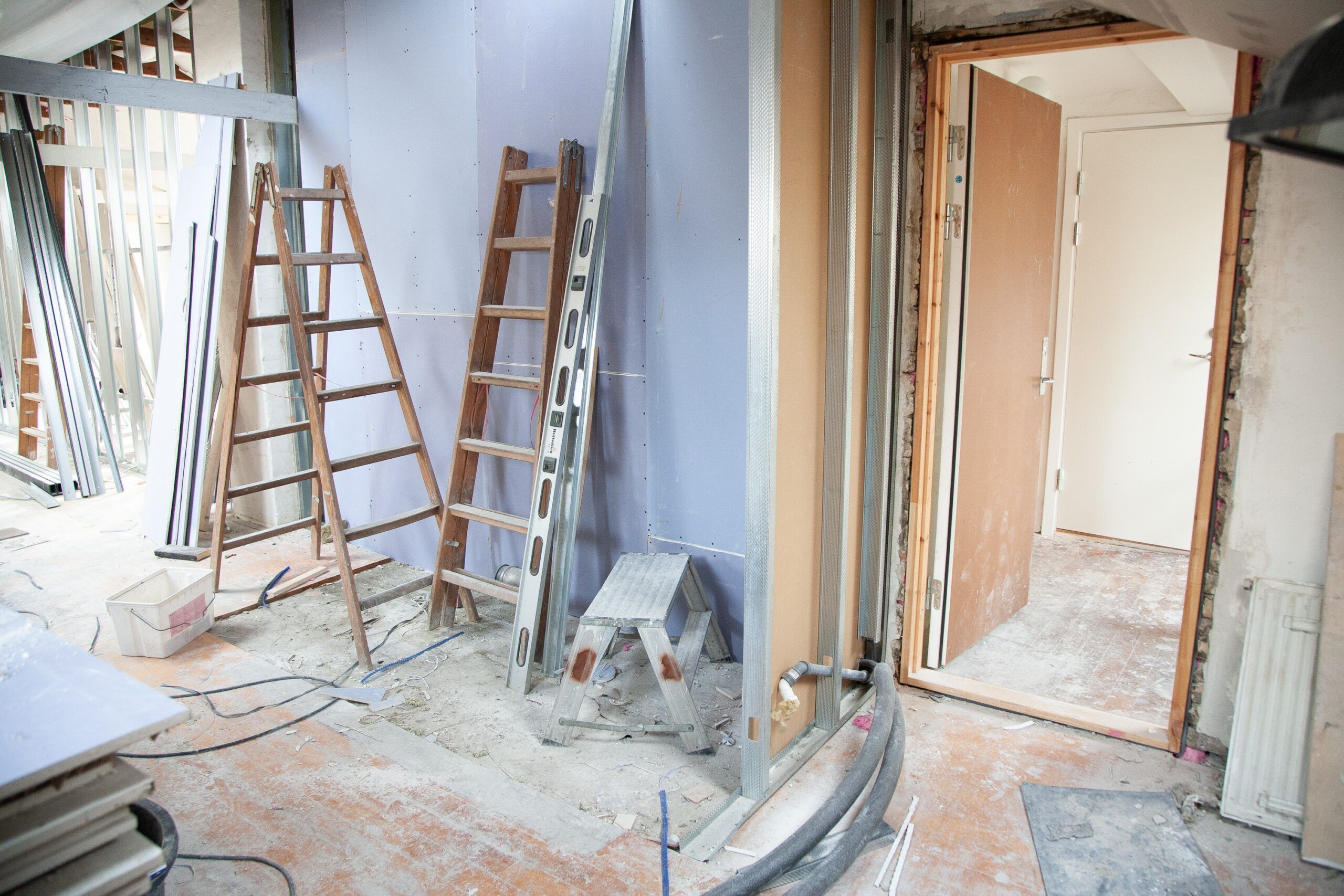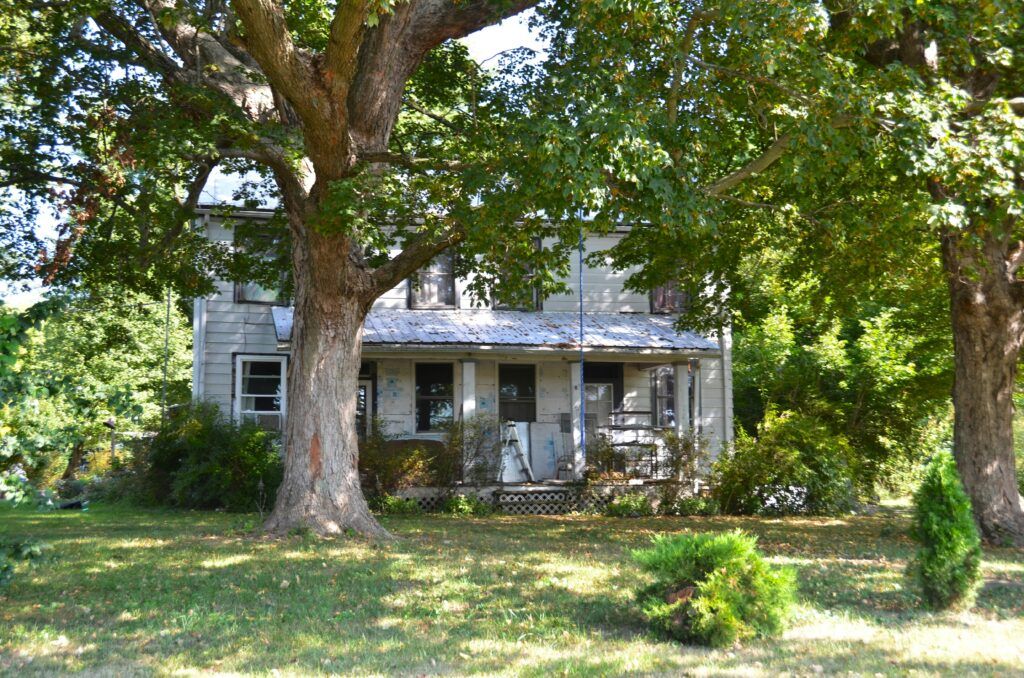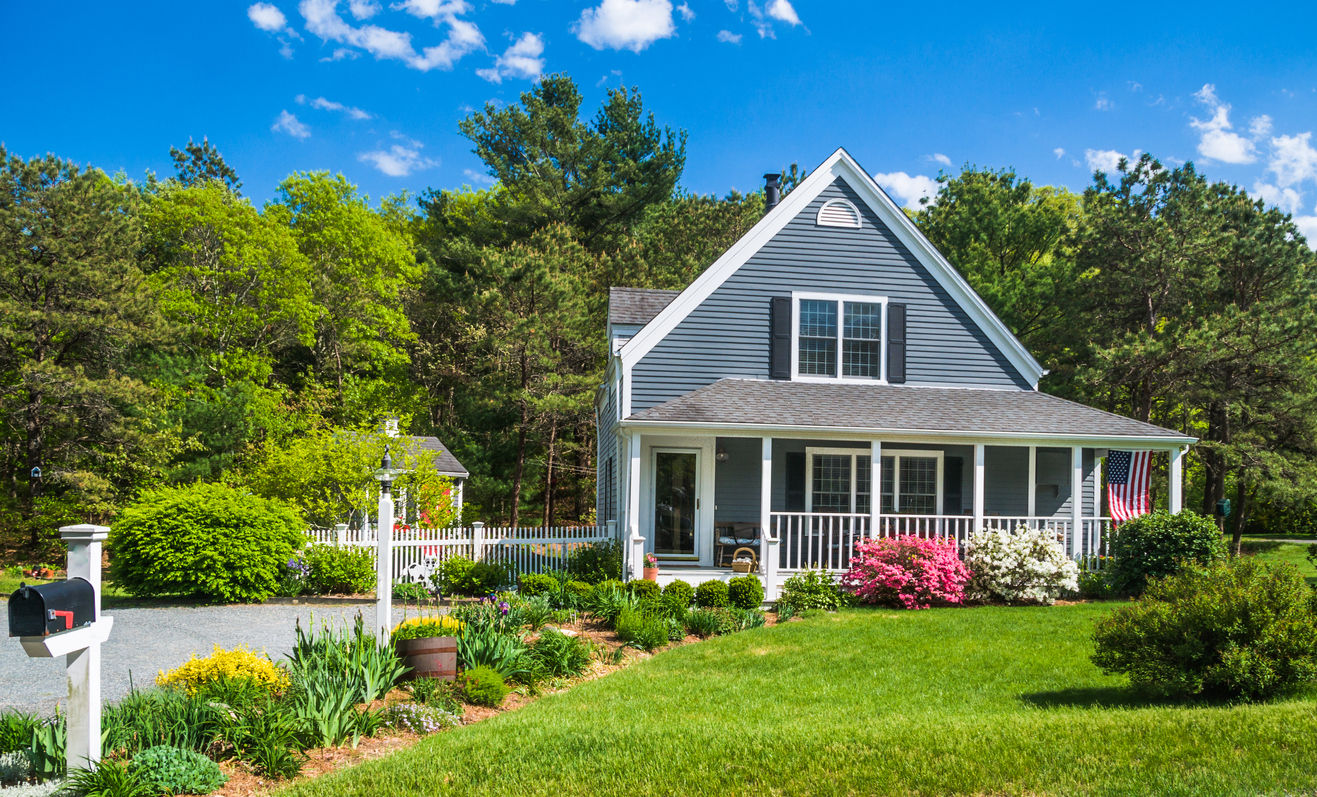- What Are Foreclosed Homes for Sale?
- Rewards of Buying Foreclosed Homes
- Risks of Buying Foreclosed Homes
- Bank-Owned Properties vs. Short Sale Homes
- Financing Foreclosed Homes for Sale
- How to Find Foreclosed Homes for Sale
- Steps to Successfully Buy a Foreclosed Home
- Common Mistakes Buyers Make with Foreclosed Homes
- How FastExpert Agents Can Help with Foreclosed Homes
Foreclosed Homes for Sale: Risks & Rewards

Foreclosed homes for sale attract attention for one big reason: price. Purchasing a property below market value is tempting for homebuyers looking for affordability and investors searching for a deal. In many cases, these homes can be priced 10% to 20% below comparable listings. Plus, the prices can be negotiated even lower, so buyers can build equity quickly or stretch a housing budget further.
But lower prices often come with trade-offs. Most foreclosed properties are sold “as-is” and haven’t been maintained. Additionally, the purchase process can involve complex negotiations with banks that lead to unexpected delays. Buying distressed real estate is not a one-size-fits-all solution, and understanding the risks involved is crucial, but with the right preparation and expert guidance, it can be a smart and rewarding move.
In this article, learn the difference between foreclosures, short sales, and bank-owned properties, and what you need to know to navigate the process successfully.
What Are Foreclosed Homes for Sale?
Foreclosed homes are properties that lenders have repossessed after borrowers failed to keep up with mortgage payments. When homeowners default on their loans, the lender has the legal right to reclaim the property through a foreclosure process. After the bank claims ownership of the foreclosed property, it is allowed to recover its losses, typically by reselling it at a foreclosure sale or auction.
Homebuyers and real estate investors who are bargain hunting are typically interested in buying a foreclosed home. Understanding how foreclosure works and the different types of distressed properties can help you spot the right opportunities and avoid costly surprises.
The Foreclosure Process
Foreclosure isn’t an overnight event, but a legal process that unfolds over time when a homeowner can no longer meet their mortgage obligations. The foreclosure timeframe varies by state, and potential buyers should be prepared for possible costly repairs. While some states can legally see the process completed within two months, in many states it drags out for months or even years.
The foreclosure process typically unfolds in the following stages:
- Missed Mortgage Payments: After multiple missed payments, the lender issues a notice of default.
- Pre-Foreclosure: The homeowner is given time to resolve the debt or sell the property. This is often when short-sale homes enter the market.
- Foreclosure Auction: If the debt isn’t resolved, the home is auctioned to the highest bidder — usually for cash and often sight unseen.
- Bank-Owned Property (REO): If the home doesn’t sell at auction, it becomes real estate owned (REO) by the lender. These homes are typically listed on the MLS and are available to the public, similar to traditional listings. Alternatively, they may be sold at auction on the courthouse steps.
Rewards of Buying Foreclosed Homes
Foreclosed homes can offer serious value for buyers willing to navigate a more complex process. From below-market prices to renovation potential, these properties come with unique opportunities to build equity and invest wisely.
1. Potential for Below-Market Purchase Prices
One of the biggest draws of foreclosed homes for sale is the price. Lenders are motivated to sell quickly to recoup their losses and mitigate carrying costs. According to data from the International Association of Certified Home Inspectors, foreclosed properties tend to sell for 10% to 25% below market value, depending on the region and the home’s condition. That price gap can offer a valuable head start for anyone looking to build equity or stretch their homebuying budget.
“Buying a foreclosed home can mean scooping up a property below market value, often with forced built-in equity potential. The risk is hidden issues like repairs or tax liens, that can quickly eat up savings. Buying a foreclosed property is a high-reward opportunity if you go thorough due diligence.”
– Jay Thomas, eXp Realty
2. Investment and Renovation Opportunities
Foreclosed properties are often sold in “as-is” condition, and while that may sound like a risk (we’ll cover that later), it’s also an opportunity. Many real estate investors specifically seek out homes that need cosmetic or structural improvements, knowing they can add value through smart renovations. Even owner-occupants can benefit, especially with access to renovation loan options like the FHA 203k or Fannie Mae HomeStyle loans.
3. Access to Desirable Neighborhoods at a Discount
In hot real estate markets, it can feel nearly impossible to break into certain neighborhoods, especially for first-time buyers. While it’s true that some foreclosed homes are located in less-than-ideal neighborhoods, many are not. In fact, financial hardship can strike homeowners anywhere, and foreclosures do occur in well-established, high-demand communities. When they do, they often hit the market at a fraction of the prices of surrounding homes.
4. Equity-Building Potential for Patient Buyers
If you’re not afraid of a little work and you’re willing to be patient, buying a foreclosed home can be a smart long-term move. Buyers who are willing to take their time, work through a more complex process, and make thoughtful updates can end up with a property worth significantly more than they paid for it, even in the first few years of ownership.

Risks of Buying Foreclosed Homes
Foreclosed homes may come at a discount, but that lower price can sometimes mask hidden costs and complications. To make a smart investment, buyers need to understand the potential risks.
1. Property Damage or Neglect
Many foreclosed homes have been vacant for months (sometimes years) before hitting the market. During that time, basic maintenance is often ignored, and in some cases, former owners may have stripped appliances, removed fixtures, or caused damage before leaving. Even if intentional damage isn’t present, long-term neglect can lead to problems like water leaks, mold, pest infestations, foundational issues, and the need for significant home repairs. These repairs can add up quickly, especially if you’re not budgeting for them upfront.
2. Limited Inspections and “As-Is” Conditions
Most foreclosed homes, especially those owned by banks, are sold “as-is”, meaning the seller won’t make any repairs or offer credits for issues uncovered during inspection. Sometimes, buyers may not even get access to inspect the home beforehand. This makes due diligence critical. Always try to schedule a home inspection when possible and work with a real estate agent who understands how to investigate potential issues, such as unpaid liens, code violations, or title complications.
3. Longer Timelines with Short Sale Homes
Short-sale homes may look like a deal on the surface, but they require the seller’s lender’s approval. That process can take weeks or even months, and many buyers don’t want to wait that long. Sometimes, buyers wait for approval only to find out the lender has rejected the offer altogether. If you’re on a tight timeline or need to move quickly, waiting can be frustrating. Patience is key with short sales, but due to the time requirements, short sales are not right for everyone.
4. Complicated Paperwork and Delays in Closing
Buying distressed homes often involves more paperwork, longer approval chains, and stricter deadlines than a traditional home sale. Banks may require additional disclosures, title checks can reveal surprises, and closing dates may shift due to legal or financial snags. Sometimes, banks outright deny financing for properties purchased through foreclosure or short sale.
If you want to save money and buy a foreclosed home, you need a knowledgeable real estate agent to help you through the process. These issues can derail your purchase or lead to costly delays. That’s why working with someone who has direct experience in foreclosure transactions and is knowledgeable about financing options is a major asset.
Bank-Owned Properties vs. Short Sale Homes
Bank-owned properties, also known as real estate owned (REO) homes, are properties that didn’t sell at auction and are now owned in full by the lender. These homes are typically listed on the MLS, can often be financed like traditional purchases, and usually come with clear titles from the current owner, making them more accessible and less risky for everyday buyers.
Short sale homes, on the other hand, are still owned by the homeowner but are being sold for less than the amount owed on the mortgage. Because the lender must approve the sale, the process can be slow, unpredictable, and requires extra patience — especially for buyers on a timeline.
For most homebuyers, bank-owned properties offer a more straightforward and faster path to ownership. Short sales can present great deals, but are often better suited for experienced investors who can handle delays and are comfortable navigating more complex negotiations.
Types of Distressed Properties Explained
When most people hear the word foreclosure, they think of a single type of sale. However, several types of sales precede the foreclosure process. Just because a property is in financial distress doesn’t mean it’s necessarily in foreclosure. Here are the terms you’ll encounter when browsing foreclosed homes for sale:
- Pre-Foreclosure: Homes where the owner has fallen behind on payments, but the property hasn’t been repossessed yet. Buyers may be able to negotiate directly with the seller for a sale.
- Short Sale Homes: The homeowner is selling the property for less than what’s owed on the mortgage, with the lender’s permission. These deals can be complex and lengthy because they require lender approval.
- Foreclosure Auction Properties: Sold at a public auction, usually for cash and “as-is.” There’s often limited access to the home beforehand, and title issues may not be fully resolved.
- Bank-Owned Properties (REO): These homes didn’t sell at auction and are now owned by the lender. They’re listed like regular homes, and because the bank wants to sell, they’re often priced to move.
Financing Foreclosed Homes for Sale
Financing a foreclosed home can be trickier than a traditional purchase, especially if the property needs significant repairs. Lenders may be hesitant to approve mortgages on distressed homes that don’t meet minimum property standards. Many foreclosures are best suited for cash buyers who have enough cash to cover the purchase and potential repairs. Cash offers move faster, avoid appraisal issues, and are more attractive to banks. That said, not every buyer has the means to go this route, which is where specialized financing comes in.
If the property needs work but you don’t have cash on hand, renovation loans can help cover both the purchase price and repair costs with a single mortgage. Common options include:
- FHA 203k Loan: Backed by the Federal Housing Administration, this loan is ideal for buyers with lower down payments and allows financing for essential repairs and upgrades.
- Fannie Mae HomeStyle Loan: Offers more flexibility than FHA loans and can be used for a wide range of renovations, including luxury improvements.
- Home Equity Line of Credit (HELOC): Best for buyers or investors who already own a home and want to tap into existing equity to finance an investment property or second purchase.
When financing a bank-owned property, lenders will closely evaluate the home’s condition, appraised value, and potential risk. If the home is deemed “uninhabitable,” meaning it lacks a working kitchen, plumbing, or roof, it may not qualify for a conventional loan without repairs. That’s why it’s critical to get a thorough inspection and work with an agent and lender who understand the nuances of buying distressed homes.
How to Find Foreclosed Homes for Sale
Finding foreclosed homes for sale can be hard. It isn’t as simple as scrolling through your favorite real estate app, although that’s a good place to start. Distressed properties are sold through various channels, so knowing where to look (and what to expect from each source) can make a big difference in how quickly and successfully you land a deal.
Here are some of the most common and effective ways to find foreclosed and short-sale homes:
- MLS Listings: Many bank-owned homes are listed on the Multiple Listing Service (MLS), just like traditional homes. A real estate agent can help you find foreclosed homes for sale as soon as they hit the market.
- Bank Websites: Some may maintain REO property pages featuring homes they’ve repossessed and are actively selling. However, most sell through a real estate agent on the MLS.
- Government Auctions: HUD, Fannie Mae (HomePath), and Freddie Mac often list foreclosed properties on their own platforms. These are typically geared toward owner-occupants, not just investors.
- Online Foreclosure Marketplaces: Websites like RealtyTrac, Auction.com, and Foreclosure.com aggregate foreclosure and auction listings, including both pre-foreclosures and REOs.
- Local Courthouse Auctions: Properties auctioned at the county level are typically sold to the highest bidder for cash, and often without a chance to inspect the property beforehand.
- Working with Specialized Real Estate Agents: Agents who specialize in distressed properties can have access to exclusive listings.
While it’s possible to find foreclosure listings on your own, its best to work with an experienced real estate. Agents often have early access to REOs. They know how to structure winning offers and can spot red flags that less experienced buyers might miss.
Steps to Successfully Buy a Foreclosed Home
Buying a foreclosed home can be a smart financial move, but it is a difficult process. Distressed properties come with unique hurdles, so having a game plan from the start is essential. Whether you’re buying a bank-owned property, short sale, or auction listing, following a clear set of steps can help you avoid costly mistakes:
- Get Pre-Approved and Set a Budget
Before you start shopping for foreclosed homes for sale, meet with a lender to understand what you can afford. Be sure to factor in potential repair costs and renovation expenses so you’re not stretching your budget too thin. - Work with an Experienced Foreclosure Agent
Partnering with an agent who specializes in foreclosures or REOs gives you access to hard-to-find listings and expert guidance through the complexities of distressed sales. - Inspect the Property and Research Title or Lien Issues
Many foreclosed homes are sold “as-is,” so inspections are critical. Also, have a title search done to uncover any outstanding liens or legal claims on the property. - Understand the Purchase Process
Foreclosed homes can be sold through auctions, banks, or government agencies, and each comes with its own rules, paperwork, and timelines. Know what to expect for the type of property you’re buying. - Make a Competitive Offer with Risk in Mind
Just because it’s a foreclosure doesn’t mean it’s a steal. Base your offer on comparable sales, the cost of needed repairs, and how much risk you’re comfortable taking on. - Finalize Financing and Close the Deal
Once your offer is accepted, complete all due diligence and finalize your financing or cash payment to close on time.
Buying a foreclosed home takes patience, planning, and a team that knows the ropes. But when done right, it can lead to significant savings, strong equity potential, and a property you can truly make your own. Preparation is key — and so is surrounding yourself with the right professionals from day one.
Common Mistakes Buyers Make with Foreclosed Homes
Foreclosures attract buyers looking for savings, but a good deal can quickly turn into a bad decision without the right preparation. Small oversights lead to bigger issues during closing or renovation. Knowing what to avoid gives you a stronger foundation before making an offer.
Here are some of the most common mistakes buyers make:
- Underestimating repair costs: Foreclosed homes often need more than surface-level improvements. Think about it this way: if the previous owner was unable to pay their mortgage, do you think they could afford maintenance and repairs? As a result, budgeting too low can lead to delays, debt, or unfinished projects.
- Skipping title checks or inspections: Hidden issues like liens, code violations, or structural damage can turn into major problems. Always verify the property’s condition and ownership status before buying a foreclosed property.
- Assuming every foreclosure is a deal: Some homes are priced fairly, even in poor condition. Others are discounted for good reason. Analyze each property based on actual market value, not just the listing label.
- Not preparing for delays in closing: Paperwork, bank approvals, or legal steps can add time. Buyers with tight schedules or inflexible plans often struggle to close on time.
Avoiding these mistakes keeps the buying process smoother and the investment sound. A thoughtful approach backed by expert support can turn a distressed property into a long-term win.
How FastExpert Agents Can Help with Foreclosed Homes
Buying a foreclosed home can unlock serious value for homebuyers and real estate investors, but the process isn’t easy. First, you’ll need to find the property, then you’ll have to work through potential bank requirements, title issues, and financing limitations. With the help of a skilled agent who knows how to evaluate distressed properties, structure competitive offers, and avoid the common traps that derail deals.
FastExpert makes it easy to connect with real estate professionals who have direct experience with foreclosures, short sales, and REO transactions. These agents bring local insight, proven strategies, and the support you need from the first showing to the final signature. Whether you’re buying your first home or building your investment portfolio, a trusted agent helps you move forward with confidence.





